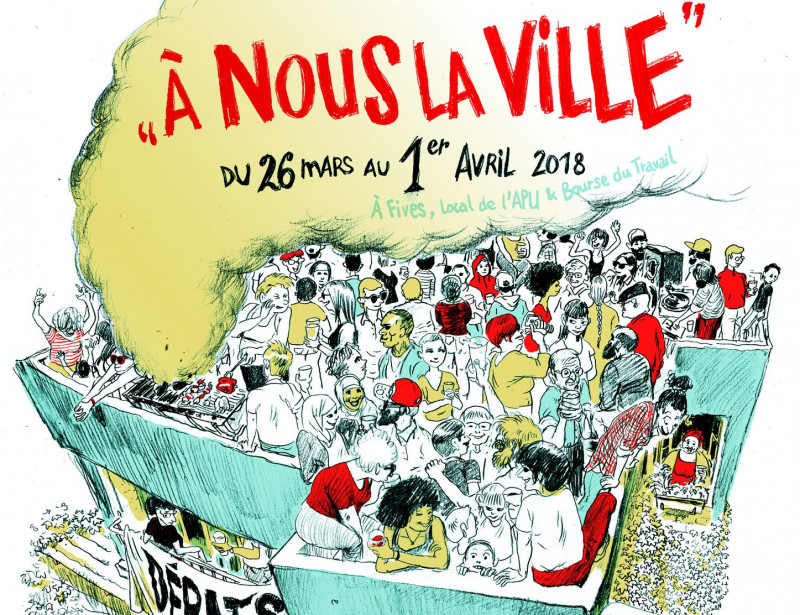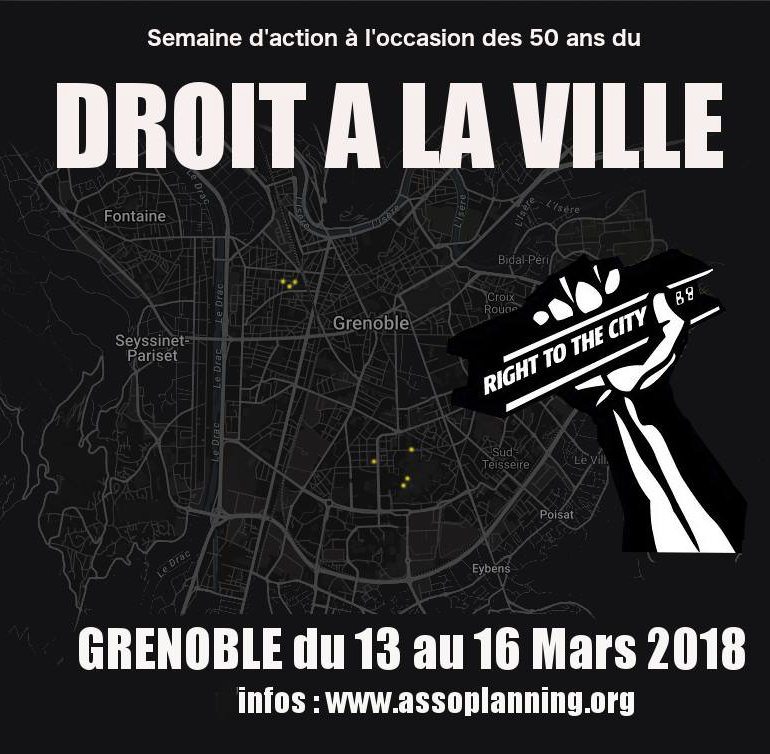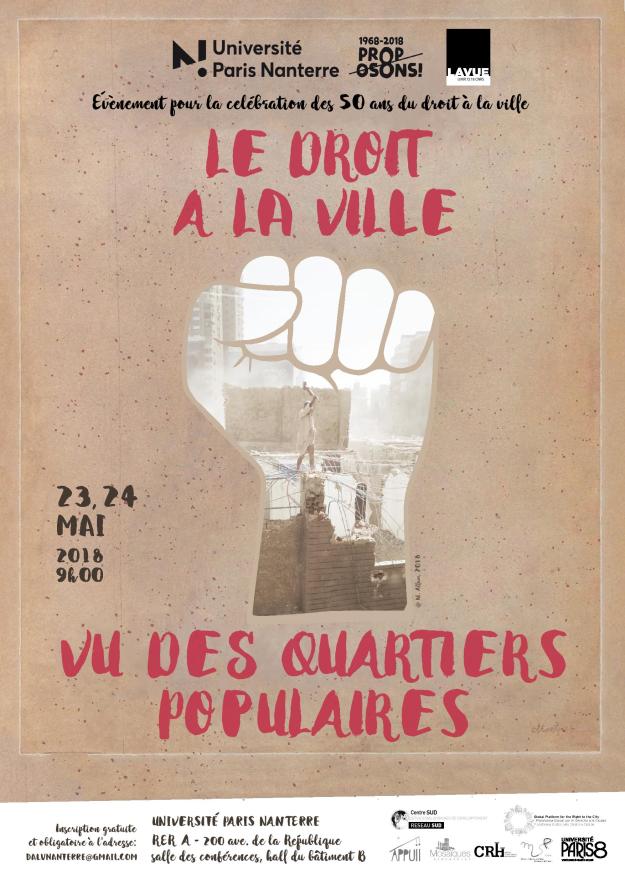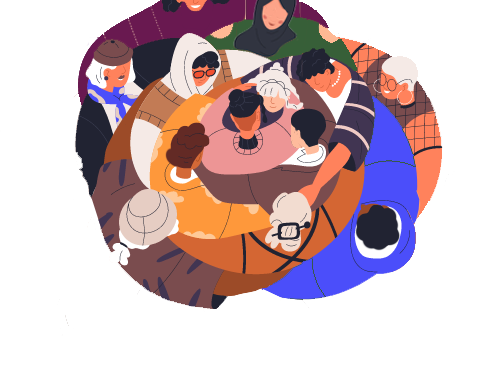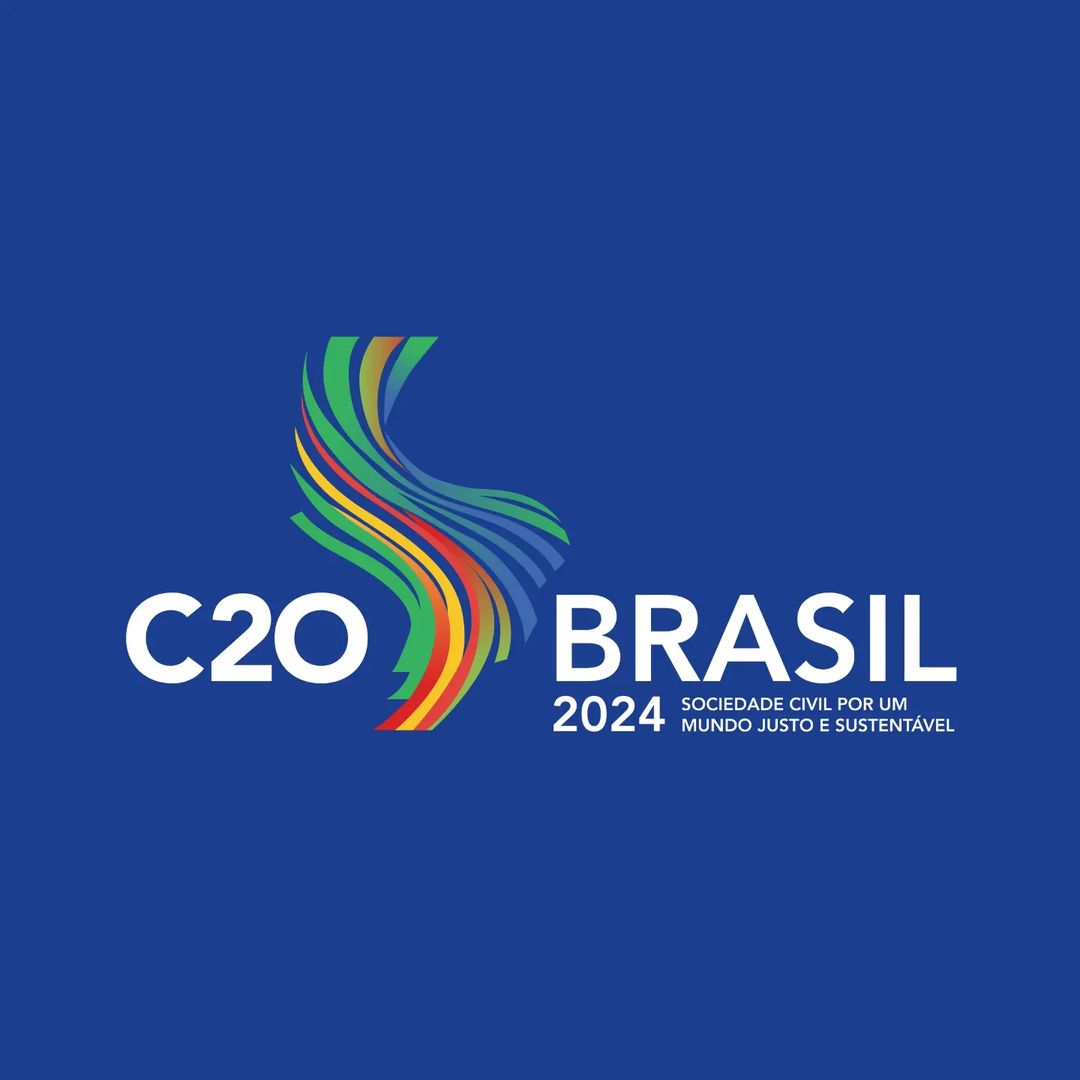Events Organized as part of the 50th Anniversary of the Right to the City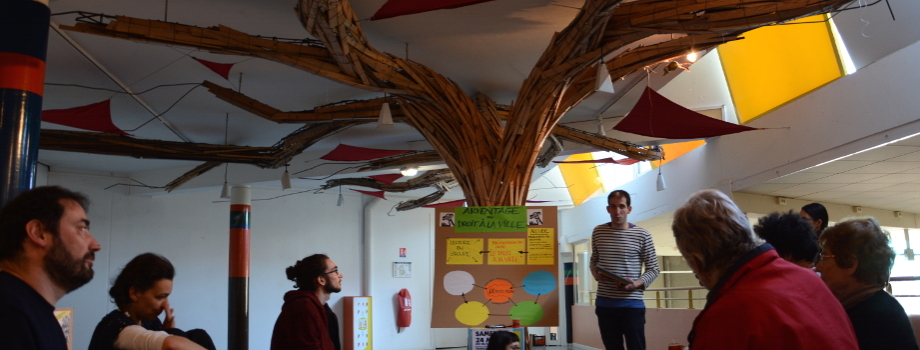
Lille: To Us the City!
The Atelier Populaire d’Urbanisme of Fives, a popular neighbourhood of Lille (France), is an association that promotes the Right to Housing and the Right to the City. Each year, it supports more than 200 families in their housing problems (unhealthy living conditions, evictions, rental disputes). It also develops collective mobilisations against the increase in taxes, urban renewal programmes and the recognition of the power of action of the inhabitants.
In April 2018, on the occasion of the 50th anniversary of Henri Lefebvre’s publication “The Right to the City” and the end of the winter truce, the association organised a week of debates, exhibitions, projections, urban walks, concerts, and so forth. The festival “To Us the City!” brought together 1,000 people and made it possible to start a local mobilisation on the issue of housing and the transformations of the city, which is still ongoing.
More information: www.apufives.org
Grenoble: The Right to the City Here and Now!
The Atelier Populaire d’Urbanisme of Villeneuve, Grenoble, and several allies organized a week of action for the Right to the City in Grenoble from 13 to 16 March 2018. It was a self-managed week, the outcome of which depended on everyone’s contribution and possibilities. The programme was very diverse, with a presentation of local publications on the Right to the City at the University of Alpine Geography and Urbanism in Grenoble; a popular education workshop on Henri Lefebvre’s manifesto book; a popular assembly with the inhabitants of Villeneuve fighting against the demolition of social housing; walks through public space to recover urban communities and an evening of solidarity with migrants!
This week was an opportunity for many people to discover Henri Lefebvre’s Right to the City, but also to deepen the theme, reflecting on its concrete implementation, here and now. This week was extended by a day of action on 16 June 2018: “50 years after the publication of the Right to the City, the question of the place of inhabitants in controlling their living conditions and their urban environment is still more than significant. Many neighbourhoods are affected by processes of gentrification, real estate speculation, financialisation or urban renewal that lead to the eviction of the working classes from the centre to the outskirts of metropolitan areas. Faced with these urban exclusion dynamics, residents are organizing struggles, multiplying initiatives and resistances.
More information : www.assoplanning.org / asso.planning@gresille.org
See the Notebooks 2017! https://hal.archives-ouvertes.fr/hal-01719247/document
Nanterre: The Right to the City from the Popular Neighborhoods!
As part of the celebration of the fiftieth anniversary of this book, which has acquired a worldwide audience, the LAVUE laboratory (CNRS), the Centre SUD/ réseau Sud, the Global Platform for the Right to the City and the APPUII association proposed an event within the university to disseminate this right.
For two days, researchers and activists discussed the Right to the City from the struggles of the popular neighborhoods. The exchanges made it possible to recall the radical nature of Henri Lefebvre’s Right to the City. The Right to the City proposes a real appropriation by the inhabitants of their living conditions and a control of the decisions that concern them. A right to a conquered participation, permanent and oriented to the self-management of the territory. A right to a renewed centrality in the face of segregation processes and urban inequalities. It is a right to leisure and to a daily life free from the alienation induced by capitalism. A right to urban life to show a different way of planning urban space.
These two days also provided an opportunity to discuss the appropriation of the Right to the City by residents and activists who act on a daily basis in the fight against gentrification and the demolition of social housing. For example, a debate was devoted to the impact of the Olympic Games on the Right to the City for the inhabitants of the Paris metropolis.


